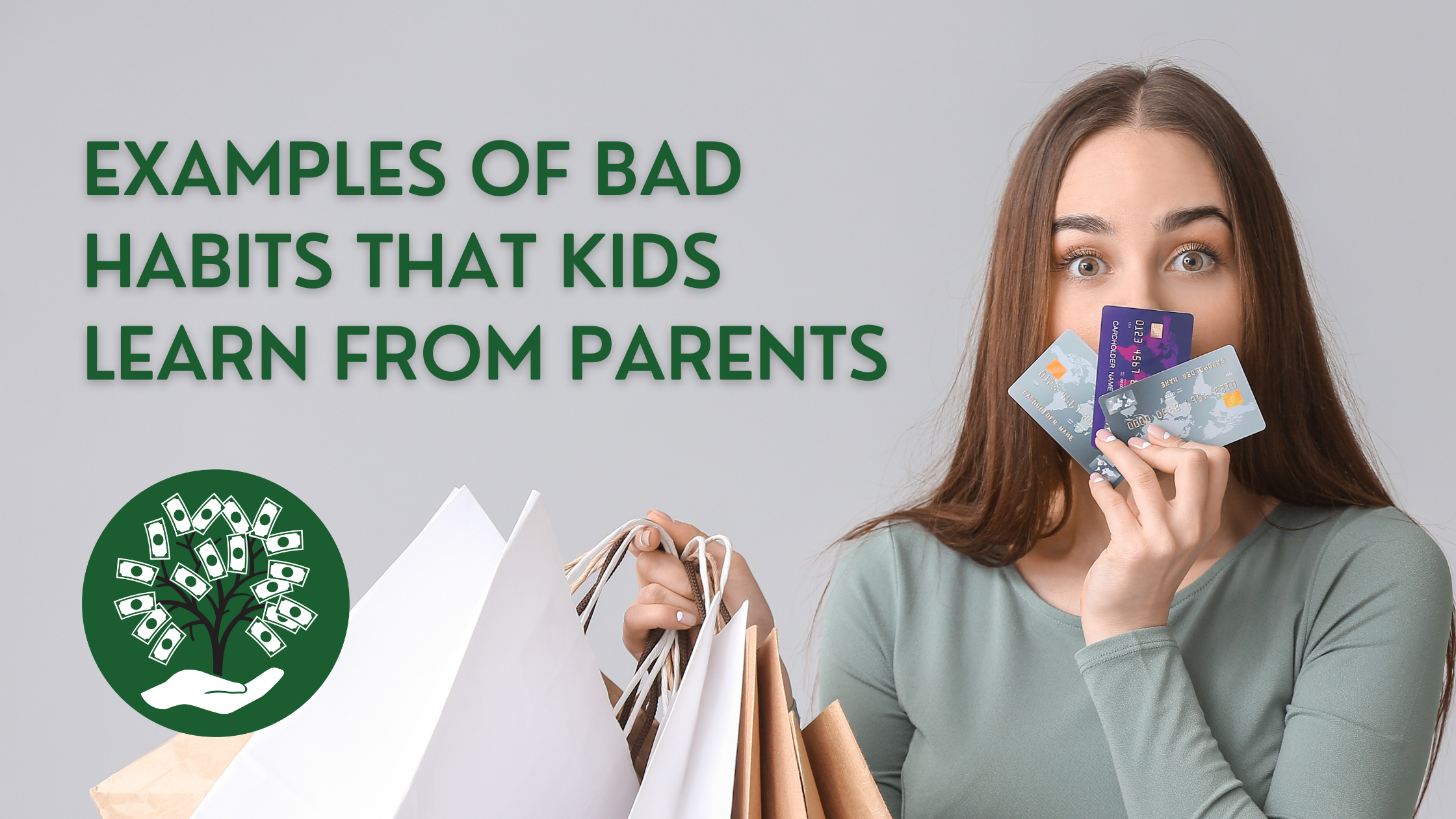Examples of Bad Habits That Kids Learn From Parents
Examples of bad habits show up in the everyday moments kids witness, not just in the words of advice they hear. Children learn far more from what we model than what we explain. The way we handle stress, money, time, and honesty becomes their blueprint. Over time, those quiet daily patterns shape how they show up in the world. That’s why being intentional about what we model matters.
Examples of Bad Habits Children Easily Pick Up
When it comes to examples of bad habits, I’ve seen firsthand how children absorb far more than we realize by simply watching us. Our everyday choices, even small ones, teach them unspoken lessons. A few examples I’ve seen in my daily life include:
Constant Phone Scrolling
When I’m glued to my phone, my kids notice. They learn that attention is fleeting and presence is optional. It’s a subtle message: the people or tasks right in front of you are less important than whatever’s on your screen.Frivolous or Impulse Spending
If you’ve caught yourself making unnecessary purchases on a whim, your kids might notice the pattern. They internalize a story about money: that wants always outweigh needs, and impulse can be a way to solve boredom or stress. There’s something to be said about delayed gratification and taking the time to save up for an item/experience that you really want to invest in.Complaining Frequently
A household where complaints are constant sets an emotional tone. I’ve seen that when parents vocalize frustration regularly, the kids start mirroring that negativity, assuming that complaining is the default response to challenges.Being Disorganized or Always Rushed
When schedules are chaotic or the family is constantly running late, it becomes the norm for our kids too. They learn that life is a constant scramble, and organization or time management isn’t that important.Bending the Truth or White Lies
Even small fibs send a message. When parents tell white lies, kids learn that honesty is negotiable and that bending the truth can be an acceptable way to navigate tough situations.Negative Self-Talk
How I talk about myself shapes how my children view themselves. If I criticize my own abilities or worth, they could potentially learn to internalize that same harsh perspective and doubt their own value.
How to Model Healthy Habits Without Perfection
Narrate your choices
I find it helps to talk through my habits out loud. Saying something like, “I’m putting my phone away so I can focus on you” gives my kids a clear example of prioritizing presence and attention.
Invite kids into positive routines
I include my kids in habits I want them to learn—cooking together, taking walks, or tidying up as a team. When they participate, it becomes a shared experience, not just a lecture.
Repair moments when you slip
No one is perfect. When I lose patience or make a poor choice, I own it. Saying, “I shouldn’t have raised my voice—I’m going to try again” teaches kids accountability and resilience.
Progress over performance
Focus on growth, not perfection. Modeling the idea that improvement matters more than flawless execution shows kids that habits are a journey, not a test.
Practical Swaps to Try This Week
Screen-free zones: Turn off devices during meals or bedtime to encourage connection.
Family budgeting moments: Let kids help plan small financial decisions to understand the value of money.
“Try again” language: Replace scolding with phrases like, “Let’s try that again” to model a different choice or perspective.
Quick reset routines: Short practices, like a five-minute tidy-up or deep breathing, teach kids how to reset when life feels chaotic.
Your Behavior Writes the Real Lesson
The habits parents model every day teach far more than words ever could. Every choice, every action, and even our small slip-ups send messages about what matters. By living intentionally, even imperfectly, we show our kids the value of thoughtful decision-making. Kids don’t need perfect parents; they need parents who are present, engaged, and aware of the lessons their behavior imparts. When we prioritize mindful habits, repair mistakes with honesty, and invite our children into positive routines, we’re not just shaping their actions, we’re shaping the way they see themselves and the world.
Take a moment today to reflect on one habit you can model more intentionally, and notice the impact it can have on the children in your life.
Frequently Asked Questions
How do my habits influence my kids?
Kids learn more from what they see than what they hear. Beyond Personal Finance helps parents understand how spending choices, and emotional habits shape children’s long-term behavior.
Can Beyond Personal Finance help teach healthy habits?
Yes! We provide practical tips and strategies for modeling positive habits (like thoughtful spending and resilience) that kids can easily pick up.
Do the lessons apply to adults too?
Definitely. Beyond Personal Finance isn’t simply just for kids—parents and leaders learn how to model better habits, make smarter financial decisions, and create a positive environment for growth.
Additional Posts You May Enjoy:
About Beyond Personal Finance: Beyond Personal Finance gives teens (middle & high school) the chance to design their future to see if they can really afford the life they dream of. In one semester (20 lessons- less than 2 hours per lesson), your teen will choose (and budget for) a career, car, apartment, spouse, house, investments, and so much more. This is the class your teen will get excited about.



